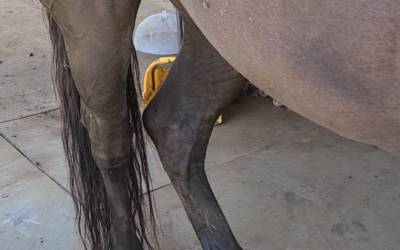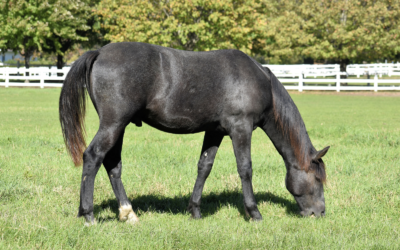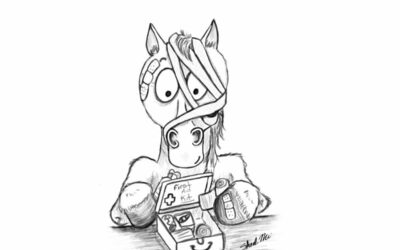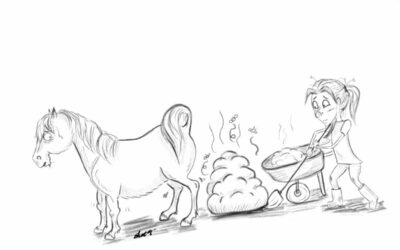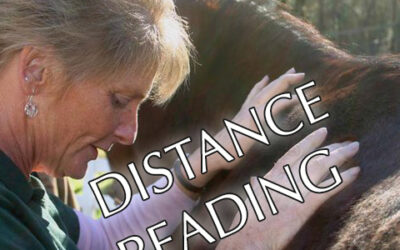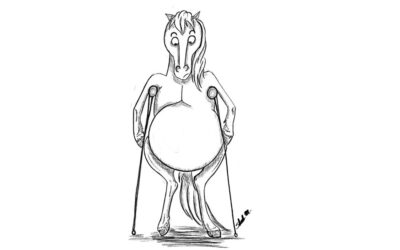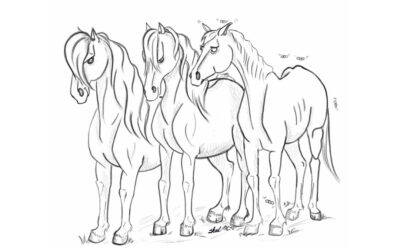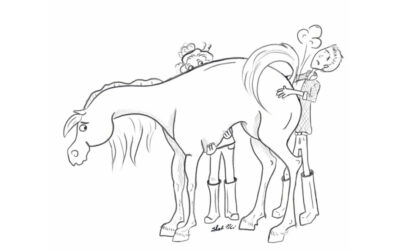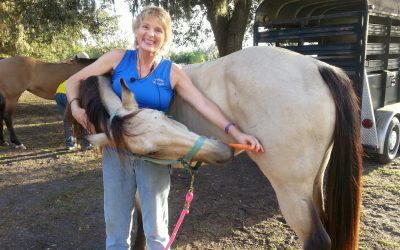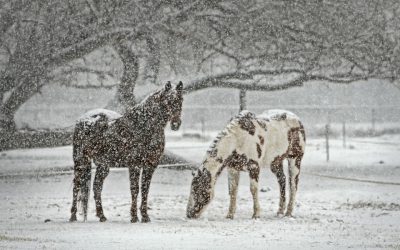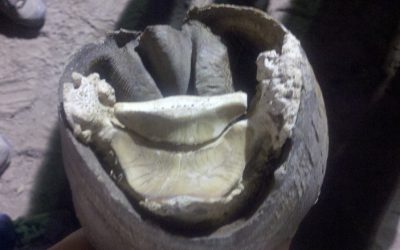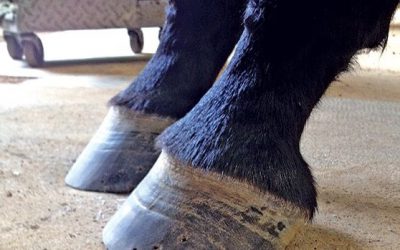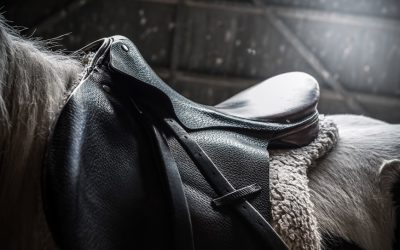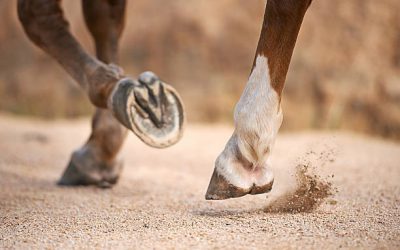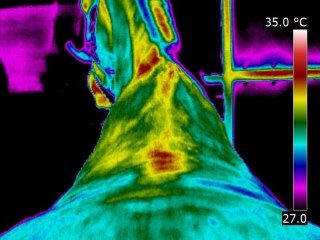Young Horses With Cow-Hocked Posture
A cow-hocked horse refers to a conformational issue where the horse’s hocks are positioned closer together than normal when viewed from the rear. We’ll explore why this happens and discuss ways to address and prevent such issues for a healthier, sound, and rideable horse.
Black Horses That Fade Out in Summer
Does your black horse fade to brown in the summer? In this episode of Holistic Horseworks Talks, April discusses how the color change is likely due to a copper deficiency in the horse’s diet. She suggests feeding the horse Dynamite Liquid Trace Minerals once a week to provide the necessary copper and prevent the fading of its black coat.
April’s Interview on Bookish Talk
Although I spend a lot of time caring for horses, I really care about people, too. I believe that by helping the owner, in turn you are helping the horse! A lot of the techniques in my equine...
Your horse is wounded! Quick, what do you do?
What’s the first thing you should do to clean an equine wound? How about the second? And aftercare? Learn what I’ve used to care for horse wounds quickly and successfully in the past, as well as what not to do.
You can potty-train your horse, here’s how
Wouldn't it be nice if your horse put all his manure in a nice pile for you? In this episode of Holistic Horseworks Talks, I talk about my own personal horse journey. Among the things I learned, by...
Learn What Is Wrong With Your Horse, From Your Horse
If you cannot get someone to come out to do bodywork on your horse, you can learn how to do it yourself at home or a clinic. Live help is so challenging to find these days. Some clinicians want you...
Learn how to tell where the lameness originated
When your horse is lame, you will watch him move to figure out where he hurts. However, what you see, may not always be the result of the actual cause of the issue. I see a lot of horses and the...
Healthier alternatives to chemical paste wormers
Many internal parasites are building up resistance to chemical paste wormers, so how can you control parasites naturally? Remember, the paste wormers available on the market are poison! There are...
What To Do When Your Horse Colics While You Wait For The Vet
notually, it is a few HOURS before the vet can get to you, so what can you do to help your horse while waiting? Recently, I worked on some horses that were distressed with colic symptoms while I was...
Love riding your horse? Here is how to help them be more comfortable in their bodies and be rideable into their 30’s
Is your horse tripping or short striding? Do you wonder why your horse is pinning ears, swishing tail when saddled or when being asked for the trot or canter? A horse unwilling to flex at the poll,...
5 Myths about Winter Horse Care
Freezing temperatures and snow bring several misconceptions on how we care for our horses. In this article, April Love examines five common winter horse care myths, and what horse owners need to...
Sidebone; what can you do about it?
Sadly, in my travels, I have seen sidebone starting on horses as young as 3 years old! What causes 'calcifications' like sidebone, ringbone, arthritic hocks and knees that can lame our horses and...
High-Low ‘Syndrome’ in front hooves? What causes it and what can you do about it?
What does High – Low Syndrome look like? Well when you squat down and look at your horses front hooves you will notice the hairlines do not match-meaning one is more horizontal and one is more...
Improper Saddle Fit Can Have Far-Reaching Effects on Your Horse!
Does your saddle fit properly? I invite you to go out to your horse and tie them, standing on a level surface. Next, stand on a stool or bucket five to ten feet behind them. Notice the alignment...
No Hoof – No Horse
This old cowboy adage has been bantered around since we first started domesticating and using the horse as a means of traveling and working with heavy loads and instills the dreaded notion that if...
If you knew your horse was in pain, what would you do?
If you knew your horse was in pain the entire time you were riding your horse, would you be enthused to learn how to fix it? Unfortunately, most people do not realize they are riding a crooked horse...
Have an article you would like to see?

